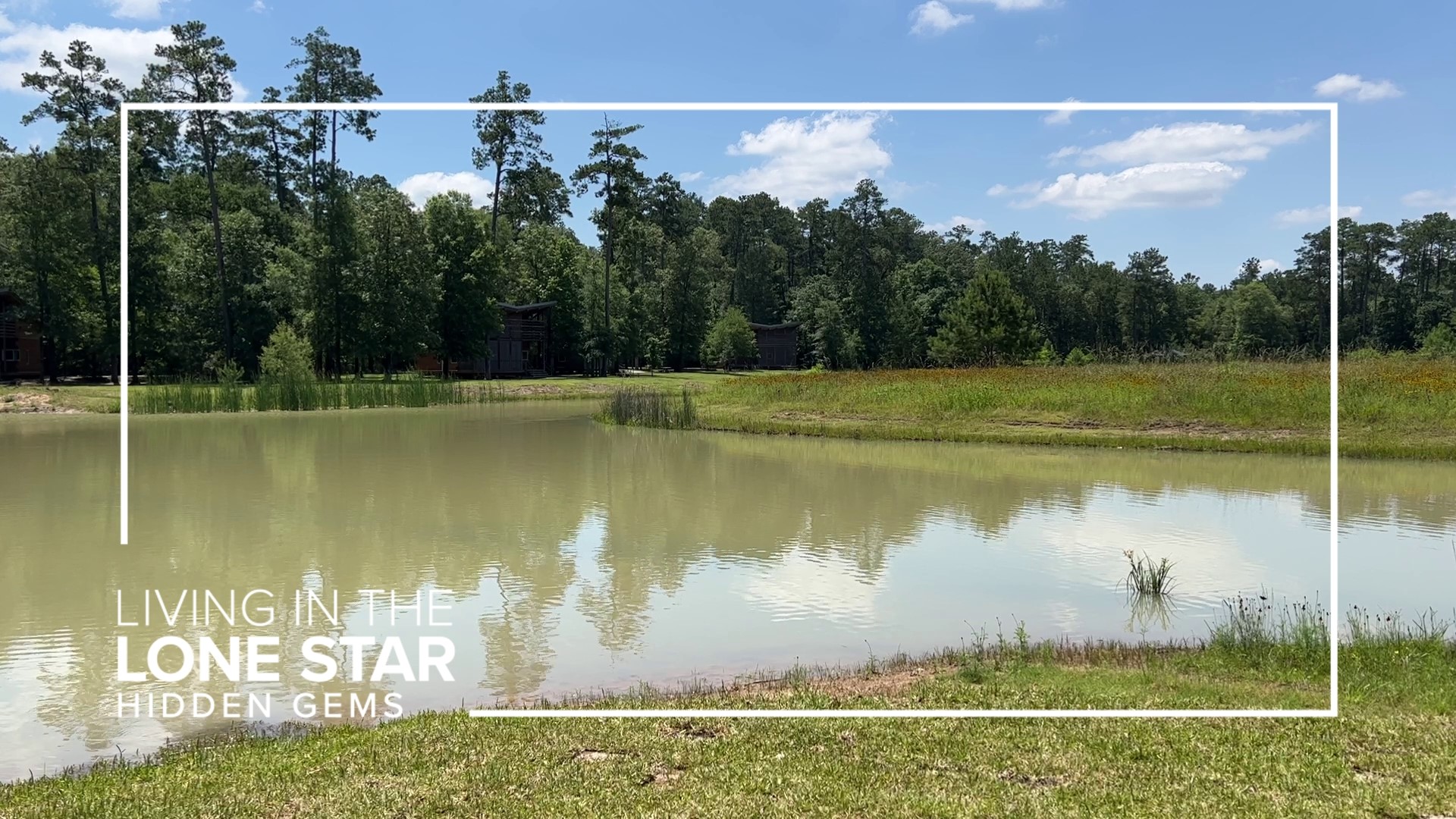NEW CANEY, Texas — Exploring Lake Houston Wilderness Park's almost 5,000 acres, there are so many different sights and sounds that might make you question whether you're truly in a City of Houston park.
"You really do feel like you’re taking a step back and you’re in the middle of nowhere, even though you’re only 30 to 40 miles away from Houston," said Lauren Hollenbeck, the park's senior superintendent.
The Grand Parkway in New Caney serves as the park's northern boundary, but it stretches all the way south to Kingwood.
"We talk to people and they’re like, ‘I’ve lived in Houston my whole life and I had no idea that this park was here,'" Hollenbeck said. "That is a daily conversation we have."
The park is heavily forested with about 20 miles of hiking and biking trails weaving through it, as well as 13 miles of horse trails. Water features include Peach Creek and a six-acre lake.
"We have things like our lakeside cabins. They have AC and heat, so it’s a little bit like glamping. We also have tent camping. We have screened shelters," said Hollenbeck, adding that this is the only City of Houston park that allows overnight camping.
Due to its size, the park acts as a kind of refuge for wildlife, serving as a home for fish, reptiles, amphibians and more.
"Mostly I would say you see the deer and birds," Hollenbeck said.
You can see them all in the Joe Turner Nature Center, where the exhibits highlight the slithery, slimy and sometimes sneaky creatures that call Lake Houston Wilderness Park home.
"We do free programs every Saturday and Sunday," said Hollenbeck, sharing that the park offers a Camping 101 class and guided hikes, among other activities.
Overall, the park is a wonderful opportunity for city folk to connect with nature.
"It’s really awesome," Hollenbeck smiled. "You can hike and bike and never see the same thing for a while."
Admission to the Lake Houston Wilderness Park is $3 for people 13 to 64. Kids and seniors get in free. Click here for more information.
Content sponsored by Dairy Queen.

